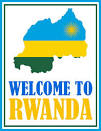This is a guest post by Zkharya
OK. It’s late, and I have little better to do than sleep or watch 30Rock. This is my officially popping my HP cherry. Something simple, easy and relatively difficult to fuck up (famous last words).
You’ve all heard of this Wikipedia thing? The universal encyclopaedia, that is open to all to edit or contribute towards? It turns out that in can be surprisingly hard to do either.
Take this The Promise, for instance. The subject of accolade from critics of film and television. Yet critically excoriated by such as Professor David Cesarani, Howard Jacobson and, you may not have heard, Jonathan Freedland.
Cesarani is, so far as I can see, the only academic historian of this or any period to have reviewed The Promise. He is not a fan. Jacobson is probably the highest profile author or novelist to have written on it, and he places it in the same bracket as Caryl Churchill’s Seven Jewish Children, a work he regards as antisemitic, at least in part, in effect, if not authorial intention. So too, you may be surprised to hear, does Jonathan Freedland, who hitherto has only said so on audio-visual recording during Jewish Book Week 2011.
I do not here give particulars of their critiques, since that follows below. But I also wish to give insight, to those that have not, into the process of editing on Wikipedia.
Now, we are told, its “in house” editors are strictly neutral. When one thinks about it, it was always going to be the case that this could never be quite so. Anyone who designs and creates a site on a subject, for instance, will naturally wish to protect certain features, or even agendas, and may vigorously suppress dissenters. In my experience, this is often called by said editors “vandalism”. But one man’s vandalism, they say, is another’s adornment. Who decides? How or why?
In the case of the site of The Promise, the relationship between original director, site designer and “neutral” wiki editor was most illuminating. James Heald is such an editor, and, or but, he was appointed by Kominsky to create, and police, the site for The Promise. Many or most of you may know this already, but this information is openly available to anyone who inspects the “edit” and “talk history” accessible on Wikipedia to those who register themselves as editors (a simple process involving submitting an email address). Some portions of these from The Promise are pasted below.
Bear with me, since this becomes, I think, more interesting. I noticed on the Wiki entry on The Promise: Reception, that the quotations from Cesarani were rather skimpy, and looked, in my view, like exercises in damage limitation. I very moderately expanded them (far less than my final version below). With the result that Peter Kominsky himself left a message in the Wiki threads, requesting that James Heald “look at” i.e. delete my contribution.
When I tried to resubmit my expansion, I was accused of “vandalism”, and threatened with being banned, with Kominsky returning to keep an eye on things (see below). Heald made some reasonable criticisms (that I exaggerated Cesarani’s stress on oil, for instance), but, in my view, the rest (from him and his colleague, Nick Cooper) were mostly spurious: their primary intention, was to blunt the thrust of Cesarani’s argument as much as possible, while giving the appearance of airing his sharpest comment. All under Heald’s pretextual claim to neutrality and disinterest (see below the mutual approbation between Kominsky and Heald).
In the end, fulfilling Heald’s rigorous criteria entailed my having to expand the section further, and I would be grateful for any constructive criticism. I think it is basically sound. Heald’s/Kominsky’s version hardly do Cesarani justice, and since the professor from Royal Holloway and Bedford is the only academic thus far to have written such a piece, I think, as one of the universal editoriate, that his critique merits more.
I have also added a transcription of the major criticisms of Jonathan Freedland’s recording, alas only with their precise times, since no transcription of the whole interview is yet available. Is this evidence, linked to the video online, acceptable on Wikipedia? And if not, why not?
I do not hold out much hope of either surviving the “neutrality” of James Heald (or his colleague Nick Cooper). But while Kominsky may be keen that nothing cloud the BAFTA on his horizon (the winners are declared May 22nd), I fancy I may direct a light, refreshing rain on Sergeant Len Matthews’s parade.
The current Wikipedia account of David Cesarani by James Heald/Peter Kominsky:
Jewish academic historian of the period David Cesarani criticised the series for not bringing out underlying selfish geopolitical motives behind British policy, saying that Kosminsky had “turned the British, who were the chief architects of the Palestine tragedy, into its prime victims…Ultimately, Kosminsky turns a three-sided conflict into a one-sided rant”.
And my extended version:
British academic historian of the period (and the only such to have reviewed The Promise hitherto) David Cesarani accuses Kominsky of having perpetrated “deceit” and “a massive historical distortion. Although The Promise is insufferably didactic, no one mentions the Balfour declaration…’the establishment in Palestine of a national home for the Jewish people’. This was the only promise that mattered because it had the force of international law.” Further, contra Kominsky, “The paratroops were not sent to separate Jews and Arabs”. Regional geo-strategy, oil, access to Egypt (i.e. the Suez canal), India and southern Russian aerial targets were “why the British beefed up the garrison there”. Cesarani then accuses Kominsky of having “turned the British.. the chief architects of the Palestine tragedy, into its prime victims” Yet, “someone must be responsible, though, and the way he (Kominsky) rewrites history that can only be the Jews. Ultimately, Kosminsky turns a three-sided conflict into a one-sided rant.”
http://www.guardian.co.uk/commentisfree/2011/mar/04/the-promise-peter-kosminsky
Also my account of Jonathan Freedland’s criticisms:
In a filmed conversation with Howard Jacobson during Jewish Book Week 2011 (see link), Jonathan Freedland, Guardian editor, journalist, author and BBC presenter, first of all says Kominsky panders to antisemitic tropes, such as that of wealthy Jews (00.52.50-58). He then brackets The Promise with works such as Caryl Churchill’s Seven Jewish Children, which he and Jacobson consider antisemitic (00.55.58-00.56.00). In an extended discussion with Howard Jacobson (01.13.28-01.14.18), Freedland makes three fundamental criticisms of The Promise:
Jacobson: ..how many you would think educated journalists still talk about Israel as though it’s a consequence of the Holocaust. Which was The Promise, wasn’t it?”
Freedland: The premise of The Promise, so to speak (it lost me first of all at the girl on Business Class), but also these very long, lingering pictures, archive footage from Belsen, I felt three things about that.
One, you don’t have the right to use those pictures, you haven’t earned the right to use those pictures artistically.
Second, I just know looking at that that you’re making a down payment on what you want to say attacking Jews later on in this series. And you’re doing that as your insurance policy, to say, well, look, I was sympathetic on that.
Third, and it was actually explicitly said by a character, a brigadier, briefing the British troops in Palestine -you knew they were saying this was the premise of all Zionism-, the Arabs were here minding their own business for 2000 years, and suddenly, after the Holocaust, Jews arrive…
Jacobson: We drop in out of the clear blue sky, bang, we’ll have that!
Exchanges between Peter Kominsky and wiki editor James Heald, over yours truly and other matters:
Hi James
Just wanted to thank you, (though I know this isn’t why you do it), for the really stunning job you have done on the “Development” and “Character” sections of this page. Beautifully written, very accurate and wonderfully well referenced, (if you don’t mind me saying so). Thank you for all the hard work. Really impressive.
I have some French national press cuttings, if that would be helpful.
Best wishes
Peter Kosminsky (talk) 23:10, 25 March 2011 (UTC)
I wonder if you have seen the addition made to the The Promise reception section by this user? Peter Kosminsky (talk) 21:22, 27 April 2011 (UTC)
http://en.wikipedia.org/wiki/User:Jheald
Sorry not to have caught that recent edit on The Promise article, but agree with your call. (I’m away at the moment, with my laptop also in for repair, so internet access is a bit hit & miss).
Many congratulations on the BAFTA nom: good luck for the 22nd! Jheald (talk) 19:14, 28 April 2011 (UTC)
Thank you. Hope you have a lovely break. The guy in question seems to have been involved in some ‘warfare’ over edits in the past so we will need to see how he reacts to my taking down his contribution. Peter Kosminsky (talk) 22:10, 28 April 2011 (UTC)


